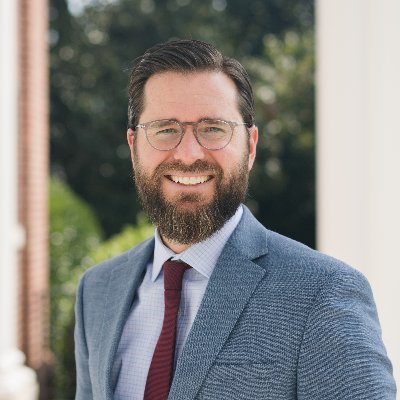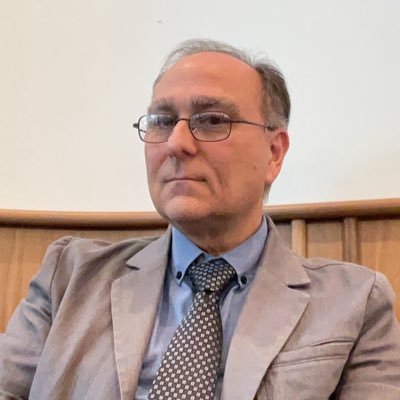
Aaron Brian Davis
@AaronBrianDavis
Followers
517
Following
5K
Media
1K
Statuses
4K
Husband. Lutheran. Lay minister & theologian. PhD (@univofstandrews). MDiv & ThM (@UPSeminary). BA (@NCState). Work in systematic/analytic theology & ethics
Western North Carolina
Joined October 2011
#CFP announcement for a special issue of the Journal of Analytic Theology which Kevin Timpe (@Calvin_Uni) and I are guest editing on analytic disability theology! Submissions are due by Nov. 1 and you can find the fuller details below 👇 .
kevintimpe.com
The Journal of Analytic Theology announces a special issue on ‘analytic disability theology’, to be edited by Kevin Timpe (Calvin University) and Aaron Brian Davis (University of St. Andrews). Call...
0
2
9
Three years ago today we moved to Scotland. Now we've been back in the US for almost a year! Was all so fast, really.
0
0
3
For the interested (incl. @Eklundsays) all the winning recipes can be found here.
henderson.ces.ncsu.edu
1
0
1
You can read the symposium Dani Jansen (@divinitysta) and I edited now!.
The latest issue of Philosophia Christi! Lots to chew on for those interested in philosophy and theology in this one feat a symposium on WLC’s book on penal substitutionary atonement (critics + response from WLC). Joining @epsociety is cheap and well worth it. Join us!
0
0
2
Looking forward to giving this paper during SCP Midwest at @AsburySeminary in November! This is an area I've found oddly neglected in disability theology, so it will be good to get some thoughts out there. Great keynote lineup too.
0
0
2
Wife's brown butter apple cinnamon rolls won a thing 🏆
2
0
11
Who could I have heard this morning on @BlueRidgePublic but @kelsaywhat talking to Ayesha Rascoe about the influence of megachurch music on contemporary pop. Would've never thought of the association, but it seems so clear once it's pointed out! .
npr.org
NPR's Ayesha Rascoe talks with Yahoo News entertainment reporter, Kelsey Weekman, about a spate of new pop songs that draw on worship traditions in megachurches.
1
1
4
So many benefits to this. One thing I've found useful time and again is just wandering the stacks of a given subject, finding things I never would've even thought to look for that contribute to what I'm working on.
Unsolicited advice for incoming PhD students: . Use the library. The actual physical building on campus.
0
0
3
It's something a lot of analytic types can miss in the "lack of clarity" or "metaphors which outstrip their meaning" one finds in continental work: it's not necessarily sloppy but rather can be something intended to be a more beautiful experience than a string of modal operators.
I read hundreds of pages of analytic philosophy a month, and nothing happens, I read one blog post on continental philosophy, and I'm brought to tears in the middle of the workday. Thanks a lot, Kierkegaard.
0
0
3
Glad to see Faith & Philosophy finally just time skipped up to 2025. Getting new issue announcements and seeing them dated a year or more behind was getting weird
0
0
2
If you don't manually title a file on my phone's built-in recording app then it just uses what it thinks the most prominent word or phrase is from the audio. Makes for some funny sermon titles
0
0
2
Alright, you people and your ongoing atonement discourse are gonna make me write something
3
0
6
But I also want to be clear about what I initially asked about and where the disconnect seems to sit. I'm not trying to stoke further debate, attack the man's work or character, or anything like that (17/17).
0
0
0
I should note, I'm not against Andrew's book at all! I found a lot of what it has to say about Levitical sacrifices very stimulating and persuasive. I have already recommended it to others to help clarify their thinking about atonement (16/17).
1
0
0
If he personally wants to use that definition that's more than fine. If he even thinks it's the best one that's fine too. But it should be obvious that if one doesn't accept it then they may well find substitution in the NT. And that's where a qualification would help (15/17).
1
0
0
Instead of this, he repeatedly asserts that if you don't accept Gathercole's definition then you're "fudging" (or something like that) and not really talking about substitution at all. And this is plainly different than issuing a qualified statement about said definition (14/17)
1
0
0
Andrew seems to think that qualifying a statement just means stating the terms you're working with, but that's not at all what I mean. I mean restricting the scope of your claims so that what you say doesn't encompass things it shouldn't (13/17).
1
0
0
Would that not be a strange thing to say? Would it not seem like I'm not quite getting what it means to qualify my statement about oil changes? Something similar is true here (12/17).
1
0
0
Now, imagine if you replied "But I use synthetic oil, so I only need to change it at Y miles. You should qualify your statement about oil changes." What if I then retorted "But I did qualify my statement because I said you use conventional oil!" (11/17).
1
0
0
Going back to the car example, if I say to you "Conventional oil is what cars use, so you need to change your oil at X miles" that's not a qualified statement. It merely asserts that you do, in fact, use conventional oil (10/17).
1
0
0
He does, as the above screenshot shows, make the caveat that if one could demonstrate some flaw in Gathercole's definition then the discussion of terms could shift. This is good! But it also highlights again how his claims aren't actually qualified but rather assertive (9/17).
1
0
0

















